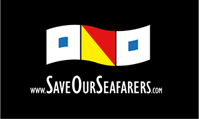FATIGUE NIGHTMARES
_________
By Andrew Guest
Andrew Guest is a freelance journalist.
From the BIMCO website
For half an hour there was almost unbroken silence on the bridge before it was shattered by the unmistakeable sounds of a ship running aground on rocks. The playback from the voyage data recorder told a familiar story to the listening casualty investigators: a lone watchkeeper at night had nodded off with no lookout posted and the watch alarm disabled as his ship sailed blindly on.
The German investigators discounted the watchkeeper’s claims he had not fallen asleep. Timesheets also told a story of illegally excessive workloads on the German-flag cargoship’s three officers working a two-watch system deemed “inadequate” by the investigators.
The English version of the report into the incident in September last year which resulted in the ship being declared a constructive total loss was published only days after a major shipping company had pleaded guilty to breaking international laws governing hours of rest and failing to comply with a warning to rectify the situation on one of its UK-flag containerships.
The UK, following a number of incidents in which fatigue among watchkeepers and the lack of a dedicated lookout were listed as key factors, has taken a unilateral stance “to ensure the safety of shipping and protect the environment”.
The Maritime & Coastguard Agency (MCA) earlier this year set out its plan for dealing with the problem. This includes inspection of crews’ timesheets and cross-checking them with other on-board documentation and ships’ voyage schedules. Surveyors are also checking that dedicated lookouts are being deployed at night. ...
...
...
As the science of fatigue advances and technology provides more reliable means of monitoring and measuring wakefulness, shipping stands to benefit. A research project into fatigue among seafarers aims to produce a “fatigue management toolkit” for the industry.
Volunteers in Project Horizon, funded by the European Union, are having their brainwaves monitored while performing duties on bridge, engine-room and cargo-handling simulators at the Chalmers University of Technology in Sweden and the Warsash Maritime Academy in the UK.
The project will, however, take 30 months to complete and in the meantime the industry, at a time of economic crisis and during a continuing shortage of officers, won’t be allowed to rest by ever-louder calls to reduce the workload on sea staff.
Some companies do seem able to respond. One has added a fourth officer in reaction to a port-state control inspection critical of the workload of the Chief Officer, according to a recent posting on an internet forum dedicated to fatigue at sea. A Master on the same forum says timesheets have provided him with a “data-driven” case to press management for higher manning levels.
Complying with the separate rules on hours of work and rest and all other crew-related regulations can be “a nightmare”, according to one industry expert. Airlines admit managing fatigue is just as complex and challenging but when successfully done can result in both greater safety and efficiency, while improving flight crews’ lifestyles. That is something for shipping to sleep on.



